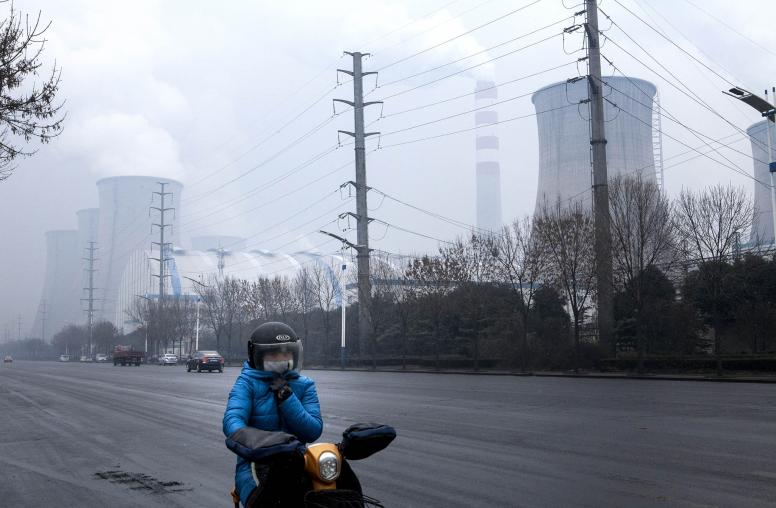‘Expeditionary Economics:’ How One Military Officer Links World Security with Economics
When it comes to creating stability and solving the world’s security problems, it may be counterintuitive that a military man believes that the power of the economy – and not the military. But indeed he does.
When it comes to creating stability and solving the world’s security problems, it may be counterintuitive that a military man believes in the power of the economy – and not the military. But indeed he does.
Col. Kevin McDonnell is retiring this month after 26 years in the Army’s Special Forces community. He has thought a lot about the conflict zones to which he’s deployed and how the next generation of soldiers can avoid them. After a decade of war, the U.S. military doesn’t want the job as world policeman, and seasoned officers like Kevin actively work to remain, essentially, unemployed.
“On a macro level,” he says, “the greatest influence this country has is economic, not military,” McDonnell told USIP’s International Network for Economics and Conflict blog (INEC) recently. “But it’s the military tool that we’re quickest to swing because it generally produces the fastest results. Economic seeds take longer to grow.”
McDonnell is good an example of how thinkers in the military see the convergence of peace, stability and economics. But he spoke for himself as a career military officer serving in Special Forces, and not for the Pentagon, the military at large or the Special Forces community. In his Pentagon office, McDonnell has large maps that show some of the world’s danger zones that include countries with haves and have-nots, but “mostly significant have-nots” as well as kleptocracies where corruption is rampant.
Like many who study conflict, military leaders like McDonnell are keenly aware of how economic opportunity can be used to manage conflict or prevent violence in unstable regions. And now they’re trying to do something about it by speaking out more and more about that link.
He and other top military officials this year visited Kellogg Graduate School of Management at Northwestern, where they spoke with MBA students about how the worlds of economics and national security intersect. “There is an emerging view inside the Defense Department that the traditional tools of national security aren’t as effective at getting us where we want to,” McDonnell recalls them telling the students. “When we look at the construct of the world today and how it might develop tomorrow, we find overlaps of national security and the private sector and commerce; there is more in common.”
But the economic development has to be legitimate and sustainable. So shoveling money into a country like Mali to help it fix its “al-Qaida problem,” as McDonnell calls it, doesn’t necessarily do the trick. Instead, creating real commerce by marrying a country’s inherent resources, both natural and mental, with outside investment to become a “tool of stability,” does. The key is finding ways to bring the two sides together. Paul Brinkley sees his job like that of eHarmony, the online dating service. Brinkley, a former deputy undersecretary at the Defense Department, is well known in these circles as the military’s point person for economic development in conflict zones having worked for years in Iraq and now Afghanistan. He has brought leaders from companies as diverse as clothing retailer Kate Spade to Honeywell to the warzones to get them to see the opportunity that exists there. A Bloomberg News article profiling Brinkley in January summed it up: “Where most people see violence and misery, Brinkley sees potential.”
It’s about taking the private sector’s eyes and opening them, Brinkley said at the time. “I’ve never regretted taking a businessperson to the theater,” the article quotes him as saying. “This is about getting their eyes on the problem.”
The United States Institute of Peace’s Raymond Gilpin, an associate vice president who oversees the Sustainable Economies Centers of Innovation notes that no one tool is the silver bullet for post-crisis and post-conflict regions. A balanced approach between the long-term stakeholders is the best answer. “Although the military has a unique role to play (being first responders), a strategic partnership between public institutions and the private sector will be most sustainable and cost-effective,” he writes in an e-mail.
But as those first responders, the military has a large interest in sustainable economies around the globe and officers like McDonnell want to do whatever they can to support them. All of this is increasingly important today. The reality is that the world that lies in the immediate future for this next generation of military men and women is one of peril and danger – but also federal debt reduction and cost savings. That means the U.S. isn’t likely to deploy forces anytime soon on the scale of Iraq or Afghanistan as diplomatic, military and development budgets are being slashed. Much in the same way that the green investor movement has grown out of necessity in recent years – people like McDonnell see the expeditionary economic movement taking off.
But this high-risk, high-yield world of frontier investment still takes investors with the right mind-set. They must be animated not only by their need for profit, but be guided by a greater need to do the right thing. McDonnell believes Wall Street is poised for this kind of investor call for action. “There are ways to do good and make money,” says McDonnell. “They are not mutually exclusive.”



